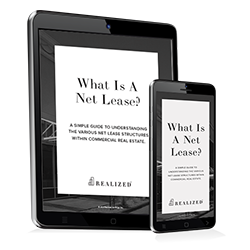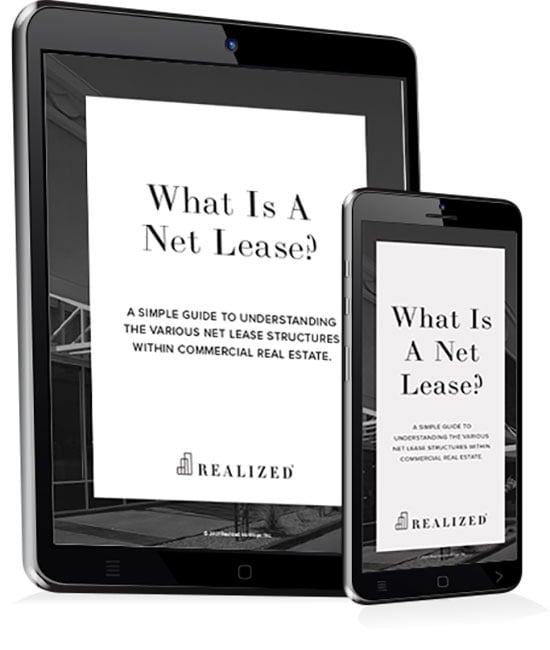
Diversification is one of the most powerful strategies you can implement as an investor. Exposure to diverse industries and geographic locations helps increase cash flow and serves as a buffer when one sector experiences unfavorable economic conditions. Triple net or NNN lease properties are one type of investment that can help enhance diversification, especially for savvy investors who understand the right approaches to NNN assets.
Below, Realized 1031 shares a primer on portfolio diversification using triple net lease investments to help you get started. Keep reading to learn more!
NNN Portfolio Diversification: Why It Works
An NNN lease is a structure in which the tenant is financially responsible for the three net operating expenses: property taxes, insurance, and maintenance costs. Thanks to this arrangement, investors enjoy less involvement in daily operations while receiving steady cash flow from monthly rental payments.
These features create conditions that make NNN leases ideal for diversification. You can branch out to other asset classes, sectors, or geographic locations without increasing overhead, provided you have the necessary capital or strong credit for financing needs. As such, NNN investments are often treated as anchors in portfolios, helping keep your cash flow stable even when other assets are experiencing turbulence.
Triple Net Lease Portfolio Diversification Strategies
What are the specific approaches you can take to leverage NNN investments in your portfolio?
Diversification Through Tenant Industry
The first opportunity for diversification comes from the tenant of your NNN asset. There are various sectors or industries to choose from, but the ideal verticals are those that are resilient against economic downturns. High-risk, high-reward industries might be attractive, but given how NNN lease terms last anywhere between 10 and 25 years, stability should be the priority.
- Healthcare and Medical Industry: Tenants from the medical sector are some of the most resilient businesses. The nature of their service means consistent demand, even during periods of economic downturns or in inflationary environments.
- Logistics and Industrial: These sectors are also stable and may see heightened demand as e-commerce continues to grow.
- Retail: While some retail niches are high-risk, those that offer basics or necessities are more likely to remain in demand even when the prices of goods rise.
Diversification Through Geographic Location
The next strategy to leverage is choosing the right location for the NNN property. Cities and regions themselves can face economic growth or loss, so having assets in multiple areas can help you safeguard cash flow in case one or two are experiencing downturns.
For most investors, urban areas are the preferred location for commercial property, which includes NNN assets. These places have high demand, but competition can be fierce. Meanwhile, suburban or secondary markets have lower acquisition costs and higher yield, but there’s the possibility of lower demand, especially when an anchor tenant within the location leaves.
Diversification Through Lease Structure and Terms
If you’re investing in several NNN leases, it’s also strategic to diversify the lease structures and terms. You don’t have to follow the standard 10-year contract. Adding variety across the agreements helps manage renewal risk. Other investors also implement varied renewal options to ensure that there’s room to renegotiate rent or upgrade tenants.
Rent escalation clauses can also be diversified to allow more flexibility on your end. One property can have a set annual increase, which ensures a reliable income during inflation. Another can follow the consumer price index so that you can increase rent based on market conditions, not time periods.
Final Thoughts on Triple Net Portfolio Diversification
NNN properties have characteristics that make them ideal for diversifying your portfolio. As you spread your investment across industries or locations and choose varied lease structures, you’re enhancing flexibility and security even when economic factors are unfavorable.
Sources:
https://www.law.cornell.edu/wex/triple_net_lease
https://www.investopedia.com/terms/t/triple-net-lease-nnn.asp



